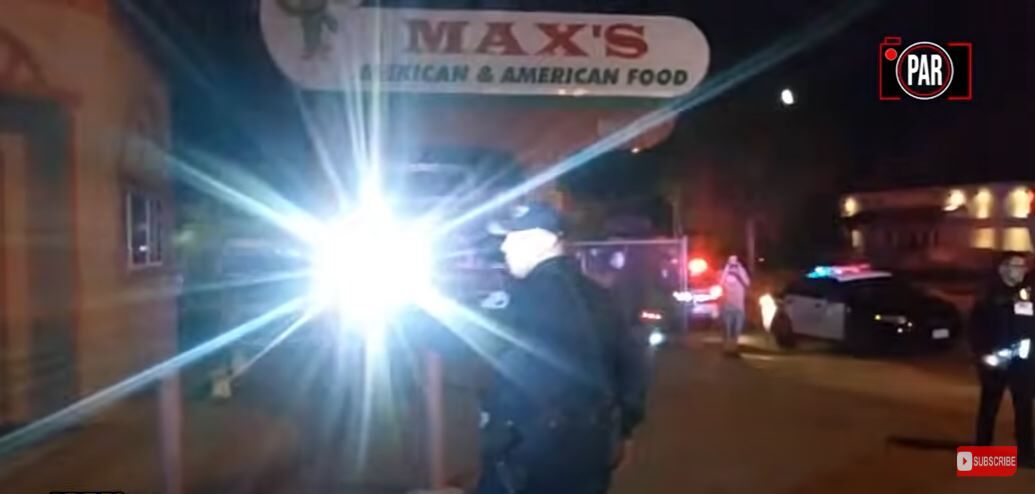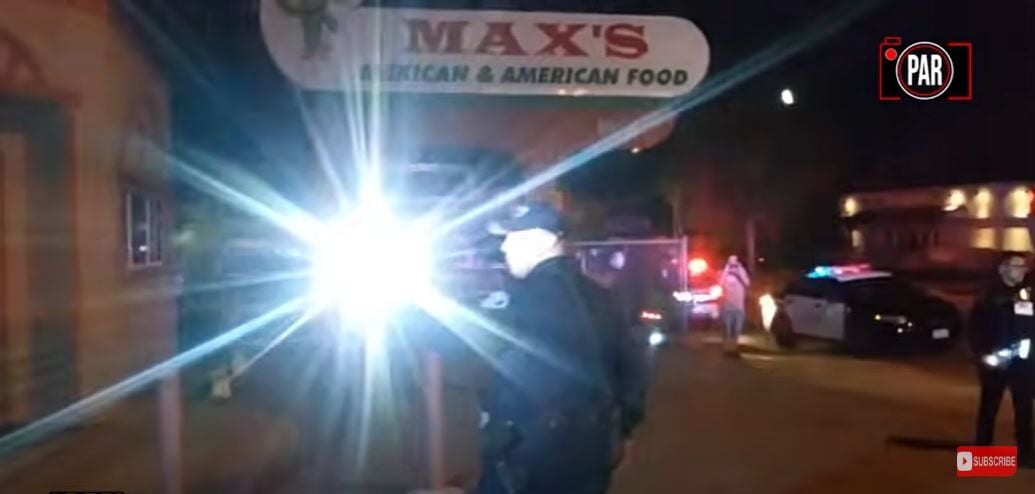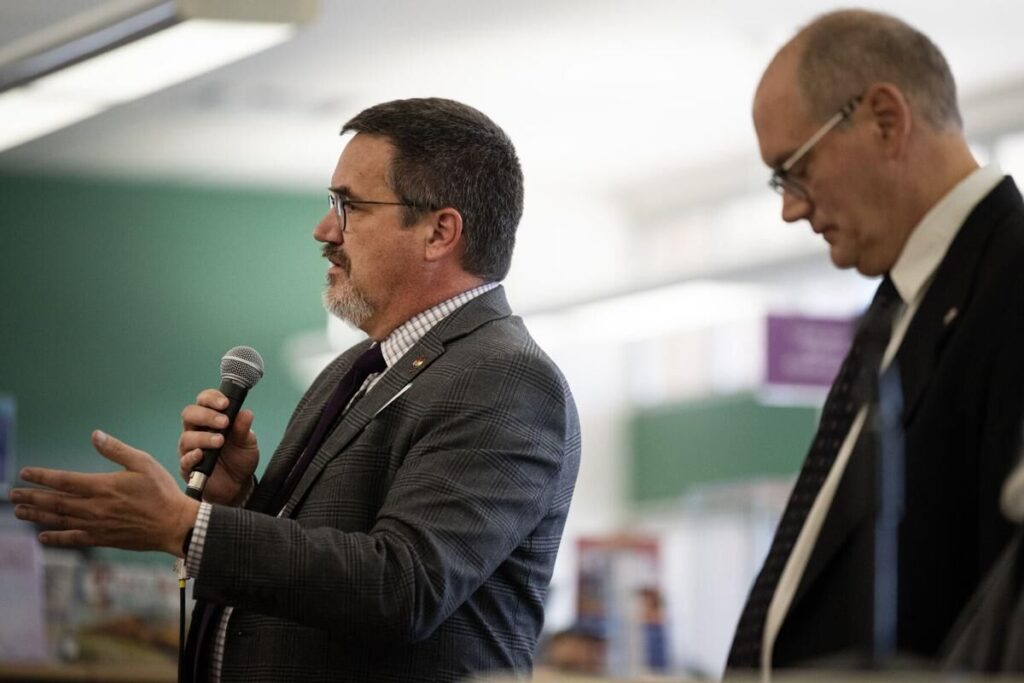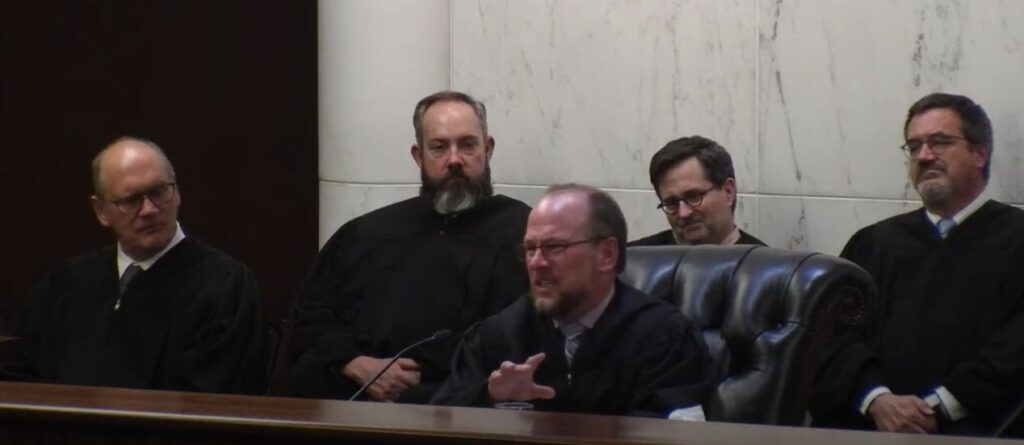‘At last – finally’: Civil liberties advocates celebrate recognition of right-to-record

Civil liberties advocates are celebrating the Denver-based federal appeals court’s decision this week to recognize the First Amendment protects the right to publicly record law enforcement officers, even while scratching their heads at some of the reasoning the court employed to reach its conclusion.
“All right, at last. Finally,” said Mark Silverstein, legal director of the ACLU of Colorado. “Finally, they say the right to record police is not just a First Amendment right but was clearly-established at least in 2019.”
A three-judge panel of the U.S. Court of Appeals for the 10th Circuit on Monday ruled in favor of Abade Irizarry, who, as a bystander, attempted to record a drunk driving traffic stop in Lakewood in May 2019, only to have one officer block his camera and drive close to him and other amateur videographers. Irizarry sued, alleging Agent Ahmed Yehia retaliated against him for exercising his First Amendment rights.
Not only did the panel determine the U.S. Constitution protected Irizarry’s ability to record the police encounter, but concluded such a right was clearly established at the time, meaning Yehia could not invoke qualified immunity to dismiss the lawsuit.
“It had me teary and I was happy,” said Albert Jerome Bustillos of New Mexico, a cop watcher like Irizarry whose own retaliation case the 10th Circuit dismissed on appeal in May of this year.
The City of Lakewood, which is representing Yehia, did not contest that the right to record exists, or even that other circuits’ decisions could establish the right clearly in the 10th Circuit. Rather, the city believed Irizarry’s case was so dissimilar from lawsuits elsewhere involving arrests or detentions as to not put Yehia on notice his actions were unreasonable.
Irizarry’s supporters say the formal declaration from the 10th Circuit will help smooth the path for bystanders seeking to hold law enforcement accountable for blocking recordings of police activity — the types of videos that have captured the beating of Rodney King in Los Angeles or the murder of George Floyd in Minneapolis. Last year, the appellate court had the opportunity to recognize such a right, but turned it down to the dismay of civil rights lawyers.
In March 2021, a 10th Circuit panel decided multiple police officers from Denver were immune from being sued for allegedly retaliating against Levi Frasier when he recorded a 2014 use of force against a suspect. Although Denver had trained its officers on bystanders’ right to record them, the 10th Circuit rejected the notion that any entity but itself could say what rights the Constitution protects.
“Judicial decisions are the only valid interpretive source of the content of clearly established law,” wrote Judge Jerome A. Holmes at the time, while simultaneously declining to say whether the right to record was clearly established.
In the July 11 opinion in Irizarry’s appeal, Judge Scott M. Matheson Jr. provided two reasons for concluding the right to record, while unclear at the time of Frasier’s encounter in 2014, was clearly established by May 2019. First, he observed that six other circuit courts of appeals had handed down similar rulings by that time, compared to only four in 2014.
“And, as noted above, we have held that the weight of authority from other circuits may clearly establish the law when at least six other circuits have recognized the right at issue,” Matheson wrote, citing a 2020 decision in which six of the 11 multistate circuits had also ruled similarly on an issue.
Alan Chen, a law professor at the University of Denver who advocated for the interpretation of the First Amendment that the 10th Circuit reached in Irizarry’s case, indicated the precise number — six circuits — was news to him.
“I’ve seen the ‘weight of authority’ standard a lot, but was not familiar with this threshold and am not sure every panel of the circuit would agree with that as the benchmark,” he said.
Elizabeth Wang, who argued Frasier’s appeal before the 10th Circuit, was similarly skeptical of the rule.
“Should two circuits be what makes the difference between a consensus and not? Not in my view, but I’ll take it,” she said.
In his second justification for finding the right to record clearly established even within the six-state region of the 10th Circuit, Matheson pointed to a 2017 appeal out of Wyoming, Western Watersheds Project v. Michael. The court reviewed a Wyoming law that imposed heightened punishment on people who trespassed through private property to collect “resource data” — taking notes on habitat conditions, extracting water samples, photographing wildlife — on public land.
There, the 10th Circuit held the collection of resource data was speech under the First Amendment. In a single line in the opinion, Senior Judge Carlos F. Lucero likened the activity to recording law enforcement.
“An individual who photographs animals or takes notes about habitat conditions is creating speech in the same manner as an individual who records a police encounter,” he wrote.
Although Irizarry did not quote from Western Watersheds in his appeal, Matheson pointed to that line as indicating, “without reservation, that filming the police performing their duties in public is protected under the First Amendment.”
Silverstein, of the ACLU, said that while he welcomed the 10th Circuit’s decision and its implications for the ability to document police misconduct, he nevertheless believed the panel’s rationale for recognizing a civil right was more complicated than necessary.
“I think this tortured reasoning just for me underscores the arbitrariness and unworkability of the whole qualified immunity doctrine,” he said. “The court had to go through so many hoops to hold that yes, this lawsuit for monetary damages can, indeed, proceed.”
Irizarry’s appeal also received backing from the U.S. Department of Justice, which only asked the 10th Circuit to recognize the right to record and did not otherwise support either party. Government lawyers pointed to a handful of other cases within the 10th Circuit filed around the same time as Irizarry’s implicating the right to record.
One of the cases involved Bustillos, who also goes by “Stray Dog the Exposer” and whose encounter with police in Carlsbad, N.M. occurred one month before Irizarry’s in Lakewood. Bustillos had attempted to record officers’ interactions with an apparently mentally-ill woman, and resisted orders to leave when one officer expressed concern that Bustillos’ presence was aggravating the woman’s condition.
A federal judge in New Mexico found even if the right to record was clearly established at the time, officers did not violate Bustillos’ rights because he likely committed the crime of failing to obey police orders. The 10th Circuit agreed with that outcome.
In a second New Mexico case stemming from events three months after Irizarry’s encounter, an officer in Santa Fe grabbed a woman’s arm and told her to sit on a curb when she attempted to video record an arrest. In that case, a district judge ruled the right to record was, in fact, clearly established, but nonetheless dismissed the claim because the lawsuit failed to identify the officer responsible.
Chen said he was unaware of any other cases pending in the 10th Circuit implicating similar activity. However, “to the extent any such cases exist and they involve incidents after May 2019, this decision will foreclose officers from asserting qualified immunity,” he added.
Irizarry’s case returns to Colorado’s federal district court for further proceedings. Attorneys for Yehia and the City of Lakewood did not respond to questions about the case. Irizarry also did not respond, and his lawyer immediately hung up on a phone call seeking comment.













